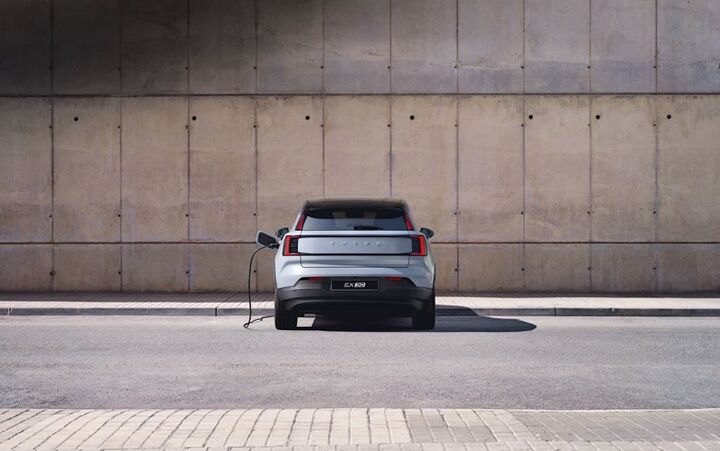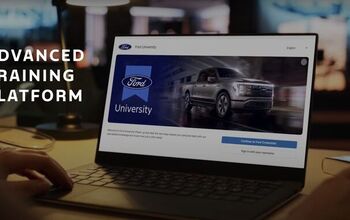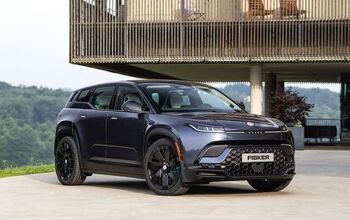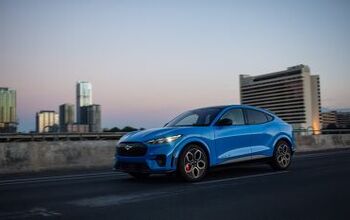Volvo the Latest to Adopt NACS

The exodus from CCS charging ports to NACS plugs continues apace with Volvo announcing its plan to incorporate the Tesla-designed tech starting in 2025.
As part of the brand’s aim to be a fully electric car maker by the calendar year 2030, Volvo Cars is promoting itself as the first European car maker to sign such an agreement with Tesla. This change will permit current and future electric Volvo car drivers access to Tesla’s vast Supercharger network across North America.
Readers giving this post more than a cursory glance will have noticed the word ‘current’ mentioned above, signaling there will be an adapter available to early adopters who have already signed the note on a Volvo EV. Indeed, the company says owners of the XC40 and C40 Recharge plus the recently revealed EX30 and EX90 will be able to find charging locations through the Volvo Cars app and are anticipated to have access to the Supercharger network from the first half of 2024.
By 2025, Volvo says buyers will find their EVs equipped with a NACS charge port. Anyone wishing to continue charging with a CCS plug out of necessity or preference will be able to continue doing so with an adapter provided by Volvo Cars. This is one of the first outright clear statements from an automaker that has announced the jump to NACS that their cars will only have that type of port. Given the sheer cost of adding a second port (and port door, and extra wiring, and and and), we’re not surprised – but it’s good to have confirmation of the plan from at least one automaker.
It’s only a matter of time until the remaining big EV guns also switch to NACS, with Hyundai and Kia being the two notable absences from this now-crowded table. While the Koreans are presently playing cards close to their chest, it's only sensible for them to make the leap in the wake of GM, Ford, Volvo, et al choosing to incorporate the so-called North American Charging Standard in their portfolio of EVs.
[Image: Volvo]
Become a TTAC insider. Get the latest news, features, TTAC takes, and everything else that gets to the truth about cars first by subscribing to our newsletter.

Matthew buys, sells, fixes, & races cars. As a human index of auto & auction knowledge, he is fond of making money and offering loud opinions.
More by Matthew Guy
Latest Car Reviews
Read moreLatest Product Reviews
Read moreRecent Comments
- W Conrad I'm not afraid of them, but they aren't needed for everyone or everywhere. Long haul and highway driving sure, but in the city, nope.
- Jalop1991 In a manner similar to PHEV being the correct answer, I declare RPVs to be the correct answer here.We're doing it with certain aircraft; why not with cars on the ground, using hardware and tools like Telsa's "FSD" or GM's "SuperCruise" as the base?Take the local Uber driver out of the car, and put him in a professional centralized environment from where he drives me around. The system and the individual car can have awareness as well as gates, but he's responsible for the driving.Put the tech into my car, and let me buy it as needed. I need someone else to drive me home; hit the button and voila, I've hired a driver for the moment. I don't want to drive 11 hours to my vacation spot; hire the remote pilot for that. When I get there, I have my car and he's still at his normal location, piloting cars for other people.The system would allow for driver rest period, like what's required for truckers, so I might end up with multiple people driving me to the coast. I don't care. And they don't have to be physically with me, therefore they can be way cheaper.Charge taxi-type per-mile rates. For long drives, offer per-trip rates. Offer subscriptions, including miles/hours. Whatever.(And for grins, dress the remote pilots all as Johnnie.)Start this out with big rigs. Take the trucker away from the long haul driving, and let him be there for emergencies and the short haul parts of the trip.And in a manner similar to PHEVs being discredited, I fully expect to be razzed for this brilliant idea (not unlike how Alan Kay wasn't recognized until many many years later for his Dynabook vision).
- B-BodyBuick84 Not afraid of AV's as I highly doubt they will ever be %100 viable for our roads. Stop-and-go downtown city or rush hour highway traffic? I can see that, but otherwise there's simply too many variables. Bad weather conditions, faded road lines or markings, reflective surfaces with glare, etc. There's also the issue of cultural norms. About a decade ago there was actually an online test called 'The Morality Machine' one could do online where you were in control of an AV and choose what action to take when a crash was inevitable. I think something like 2.5 million people across the world participated? For example, do you hit and most likely kill the elderly couple strolling across the crosswalk or crash the vehicle into a cement barrier and almost certainly cause the death of the vehicle occupants? What if it's a parent and child? In N. America 98% of people choose to hit the elderly couple and save themselves while in Asia, the exact opposite happened where 98% choose to hit the parent and child. Why? Cultural differences. Asia puts a lot of emphasis on respecting their elderly while N. America has a culture of 'save/ protect the children'. Are these AV's going to respect that culture? Is a VW Jetta or Buick Envision AV going to have different programming depending on whether it's sold in Canada or Taiwan? how's that going to effect legislation and legal battles when a crash inevitibly does happen? These are the true barriers to mass AV adoption, and in the 10 years since that test came out, there has been zero answers or progress on this matter. So no, I'm not afraid of AV's simply because with the exception of a few specific situations, most avenues are going to prove to be a dead-end for automakers.
- Mike Bradley Autonomous cars were developed in Silicon Valley. For new products there, the standard business plan is to put a barely-functioning product on the market right away and wait for the early-adopter customers to find the flaws. That's exactly what's happened. Detroit's plan is pretty much the opposite, but Detroit isn't developing this product. That's why dealers, for instance, haven't been trained in the cars.
- Dartman https://apnews.com/article/artificial-intelligence-fighter-jets-air-force-6a1100c96a73ca9b7f41cbd6a2753fdaAutonomous/Ai is here now. The question is implementation and acceptance.


































Comments
Join the conversation
Another week, another ring kisser. Is Toyota next? My bet is H/K.
Also announced yesterday (saw this on Autoline Daily) is that SAE will standardize the NACS plug, so it will get a J number, like the CCS plug. This will probably end up driving the NACS plus becoming the default standard.